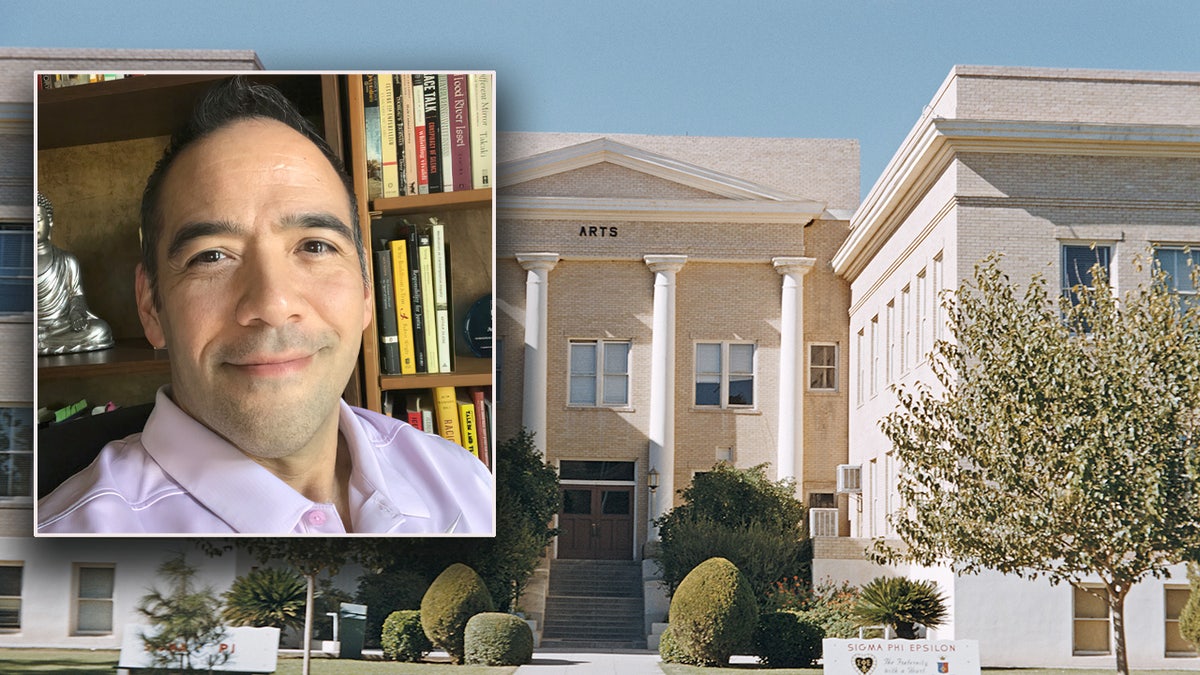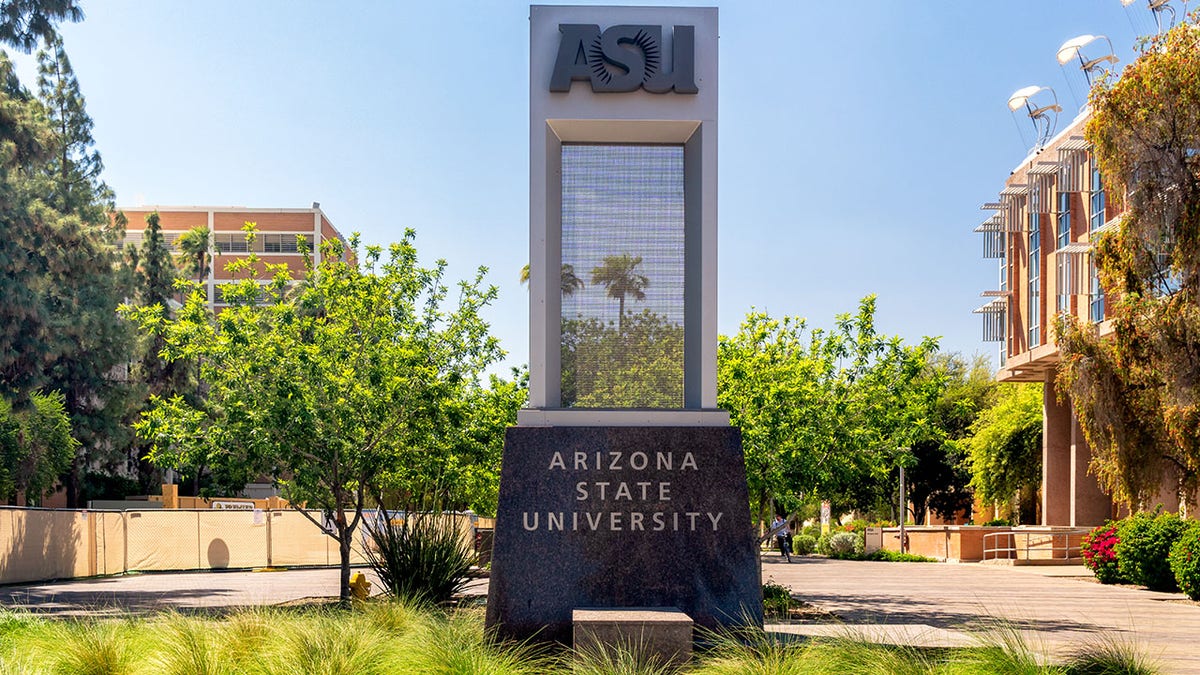Fox News Flash top headlines for November 9
Fox News Flash top headlines are here. Check out what's clicking on Foxnews.com.
A professor at Arizona State University is calling for the end to "White supremacy language," and to do away with the common way of grading papers in favor of labor-based grading that will redistribute "power."
"White language supremacy in writing classrooms is due to the uneven and diverse linguistic legacies that everyone inherits, and the racialized white discourses that are used as standards, which give privilege to those students who embody those habits of white language already," Asao Inoue, professor of rhetoric and composition at Arizona State University, said during an online discussion last Thursday, the College Fix reported.

A view of the Industrial Arts Building, Arizona State University, Tempe, Arizona, September 1958. (Photo by Archive Photos/Getty Images) (Getty Images/Arizona State University)
Inoue added that White supremacy culture "makes up the culture and normal practices of our classrooms and disciplines." To combat the issues, Inoue suggested implementing labor-based grading, which "redistributes power in ways that allow for more diverse habits of language to circulate." He has also coined the phrase, "Habits of White Language," used to describe the common way teachers and professors grade papers.
COLLEGE STUDENTS CONFRONT WHITE PEERS WITH 'POLICE LIVES MATTER' STICKER: 'YOU ARE RACIST'
Labor-based grading would mean weighing assignments based on how much "labor" students put into their work, and not assigning grades based on grammar or quality of work.
"Labor-based grading structurally changes everyone’s relationship to dominant standards of English that come from elite, masculine, heteronormative, ableist, white racial groups of speakers," Inoue said in the presentation, the College Fix reported.

TEMPE, AZ/USA - APRIL 10, 2019: Entrance sign to the campus of Arizona State University. (iStock)
Inoue’s talk came during a 70-minute event hosted by the Rhetoric, Writing and Linguistics Speaker Series sponsored by the Department of English at the University of Tennessee, Knoxville. The discussion was aimed at professors, but was also open to students, alumni and others.
ACTIVIST WHO RECORDED SINEMA IN ASU BATHROOM DEFENDS ACTIONS, ACCUSES CRITICS OF BEING 'TONE POLICE'
Inoue told Fox News later on Tuesday that "labor-based grading ecologies are fundamentally about creating compassionate, democratic conditions, ones that are critical and rigorous, if by rigorous we mean deep, thoughtful, engagement with each other for each other’s sake and not for grades or false external motivators that ultimately erode students’ abilities to learn and take risks."
"These new conditions can provide a wider group of students who come from a more diverse set of language backgrounds, to thrive and learn. This is important to do if we are to inquire about the politics of English language in our world that end up creating situations of misunderstanding and harm," he continued.
He also pointed out to Fox News that he is not calling for classrooms that do not have grammar and language instruction.
"What I’m arguing for are safe classrooms that offer better, clearer ways to understand what it means to learn dominant forms of English in our world today. So, I’m NOT arguing we get rid of grammar and language instruction, nor even that we don’t pay close attention to what I call habits of white language (HOWL). I AM arguing that we create better conditions in classrooms for all students, no matter their language backgrounds," he told Fox News in an email.
The ASU professor also had participants pause during the talk to exercise "an important anti-racist practice" of examining how they participate in racism or anti-racism.
"Pausing in our work helps us intervene and disrupt by first noticing ourselves participating in racism, engaging in white fragility, in white rage, or white language supremacy," he said.
CLICK HERE TO GET THE FOX NEWS APP
Inoue, along with his wife, recently established an antiracist teaching endowment earlier this year. It aims to fund "an antiracist teaching conference for secondary and postsecondary teachers;" "support a summer workshop or institute for a smaller group of teachers to learn about and research antiracist teaching approaches;"and establish "several scholarships for students who wish to focus on antiracist approaches to teaching in a variety of disciplines."











































